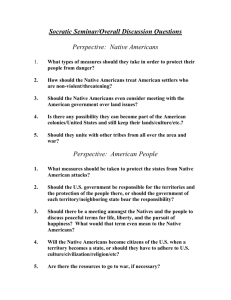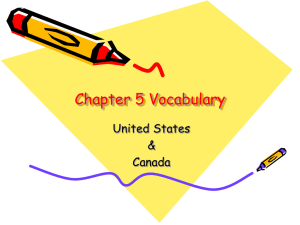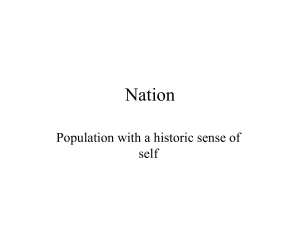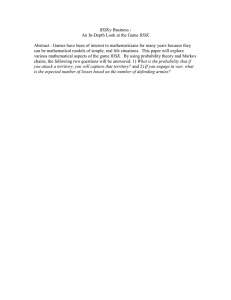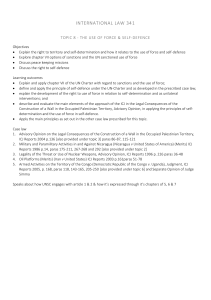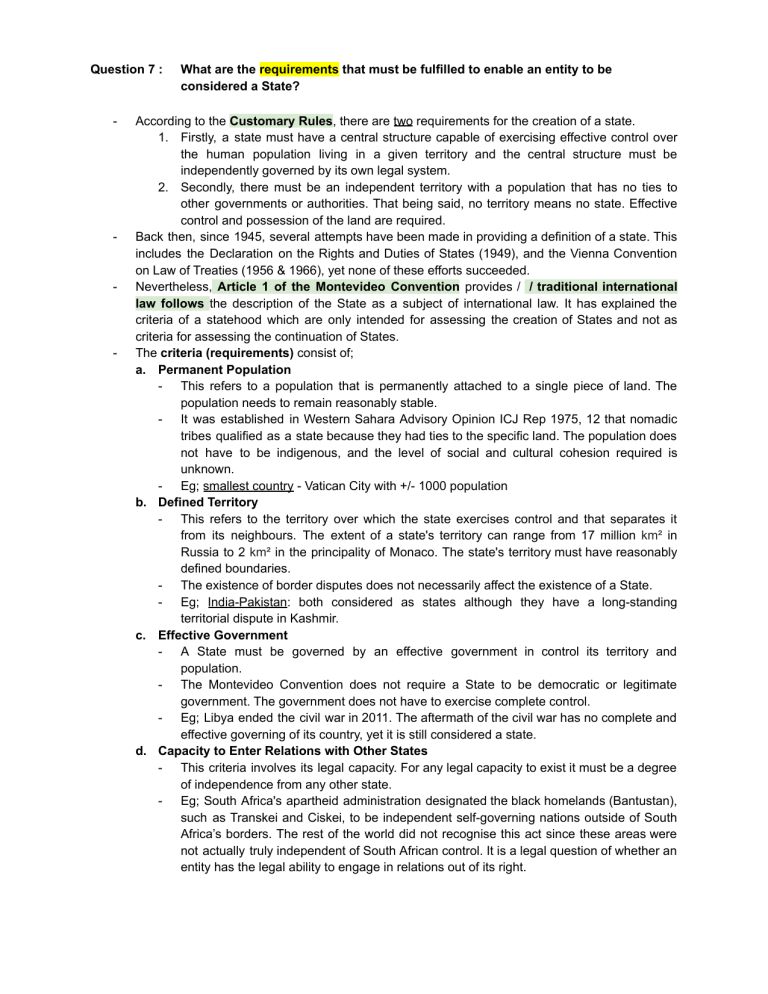
Question 7 : - - - - What are the requirements that must be fulfilled to enable an entity to be considered a State? According to the Customary Rules, there are two requirements for the creation of a state. 1. Firstly, a state must have a central structure capable of exercising effective control over the human population living in a given territory and the central structure must be independently governed by its own legal system. 2. Secondly, there must be an independent territory with a population that has no ties to other governments or authorities. That being said, no territory means no state. Effective control and possession of the land are required. Back then, since 1945, several attempts have been made in providing a definition of a state. This includes the Declaration on the Rights and Duties of States (1949), and the Vienna Convention on Law of Treaties (1956 & 1966), yet none of these efforts succeeded. Nevertheless, Article 1 of the Montevideo Convention provides / / traditional international law follows the description of the State as a subject of international law. It has explained the criteria of a statehood which are only intended for assessing the creation of States and not as criteria for assessing the continuation of States. The criteria (requirements) consist of; a. Permanent Population - This refers to a population that is permanently attached to a single piece of land. The population needs to remain reasonably stable. - It was established in Western Sahara Advisory Opinion ICJ Rep 1975, 12 that nomadic tribes qualified as a state because they had ties to the specific land. The population does not have to be indigenous, and the level of social and cultural cohesion required is unknown. - Eg; smallest country - Vatican City with +/- 1000 population b. Defined Territory - This refers to the territory over which the state exercises control and that separates it from its neighbours. The extent of a state's territory can range from 17 million km² in Russia to 2 km² in the principality of Monaco. The state's territory must have reasonably defined boundaries. - The existence of border disputes does not necessarily affect the existence of a State. - Eg; India-Pakistan: both considered as states although they have a long-standing territorial dispute in Kashmir. c. Effective Government - A State must be governed by an effective government in control its territory and population. - The Montevideo Convention does not require a State to be democratic or legitimate government. The government does not have to exercise complete control. - Eg; Libya ended the civil war in 2011. The aftermath of the civil war has no complete and effective governing of its country, yet it is still considered a state. d. Capacity to Enter Relations with Other States - This criteria involves its legal capacity. For any legal capacity to exist it must be a degree of independence from any other state. - Eg; South Africa's apartheid administration designated the black homelands (Bantustan), such as Transkei and Ciskei, to be independent self-governing nations outside of South Africa’s borders. The rest of the world did not recognise this act since these areas were not actually truly independent of South African control. It is a legal question of whether an entity has the legal ability to engage in relations out of its right. Question 20: a) Discuss the status and extent to which individuals, international organisations and insurgents have now been recognized as international legal subjects. International Organisations - - - b) International organisations have such international personality as is accorded to them by States in their constituent documents and as developed in practice. Eg: In the late 1940s, some UN personnel in Palestine had been killed and injured by the activities. The General Assembly asked the ICJ for an advisory opinion as to whether the UN could make a claim against the responsible Government (Israel). In the Reparations Opinion (1949), the ICJ advised that the UN had the capacity to make a claim in respect of the harm to its officials. Reparations Opinion (1949): the ICJ ruled that the UN had international personality, in particular the right to make an international claim against a State, through the UN Charter implicitly and explicitly in its treaty-making power and its privileges and immunities. In the Interpretation of the Agreement of 25 March 1951 between the WHO and Egypt, Judge Gros, stated that “each international organization has only the competence which has been conferred on it by the States which founded it, and its powers are strictly limited to whatever is necessary to perform the functions which its constitutive charter has defined. Individuals - - - - - c) Individuals has become visible in international law since the 20th century whereby it has become a central focus on the human rights law as a separate discipline. Together with holding responsibility for any crime against humanity, individuals also has the right to access to the court. Talking in regards of the individual’s status and its extension as subject of international law, 1949 International Law Comission’s Survey of International Law summarized stated that individuals have the international right under a treaty. As an example, right to life, and right to a fair trial. Moreover, individuals also have international duties i.e obligations of international law bind the individuals directly. For instance, the military during combat has the duty to disobey any superior’s unlawful order. As a result, the combinations of individuals having international rights and duties leads to the extent of international legal personality, which defines that individuals are recognised holders of international rights and duties. Last but not least, the individuals also have the capacity to bring international claims. However, it has to be accepted that individuals have only such rights, and are exposed to such obligations, as States chose; and, apart from those few human right treaties which give them a right to pursue a remedy before an international tribunal, individuals have no procedural capacity. Insurgents - - Moving on to the group of individuals which is insurgent, whereby it has gained more recognition as subjects of international law. In which, insurgents has the capacity to enter into international relation. As an example, insurgents are allowed to enter arrangements for humanitarian protection and other general agreements. Which are human right treaties: - Article 4 of the Optional Protocol to the Convention on the Rights of the Child on the involvement of children in armed conflict (children under 18 are ought not to be recruited by the Afganistan armed groups. - Security Council established a mechanism to monitor and report such child violation for armed groups.(imposing sanction)


